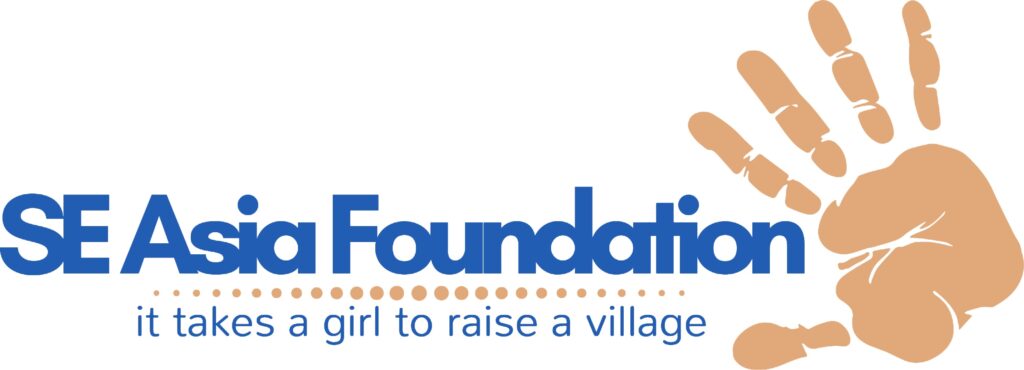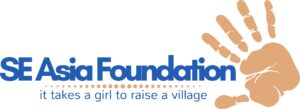Here’s a report on the Myanmar segment of my most recent trip
Just getting to Myanmar is a bit more of a hassle than traveling to other countries in SE Asia. Myanmar requires a Visa – in advance. That involved downloading the proper forms, sending them along with my passport and a $20 money order to the Myanmar consulate in Washington DC. Ended up costing about $50 and took just over a week. Having taken care of this in advance, my entry into Myanmar was uneventful.
After I connected with Jana at the airport in Yangon (formerly Rangoon) we headed for the hotel where we met up with our other three travelers from the TWCCTW group, Scott Freidman, Lynn Leahy, and Rebecca Morgan. The following morning Treasure Shine, our long-time friend who is now the Partners Asia Project Manager for both Myanmar and Thailand, joined us. Off we went to visit some of her projects.
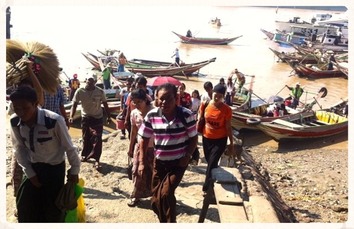
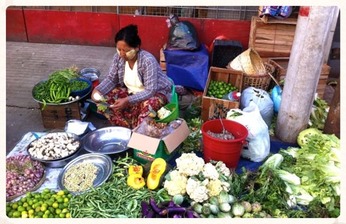
Our first stop was at a place in Yangon called Edunet. Here, a very small staff augmented by some dedicated volunteers provides a library and educational opportunities for nearly 100 local children. They’ve even written and published (in English and Burmese) some original works telling culturally important stories to interest the children in bettering their lives. One of the staff there will be a delegate to our newly established SE Asia Leadership Initiative (SALI) conducted by iLeap here in Seattle. The very first two-week long SALI session will begin in April this year. Wahoo! Here’s a couple of views of this great place.
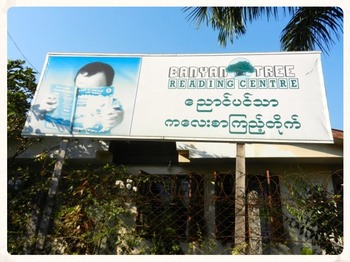
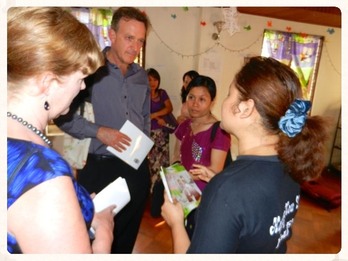
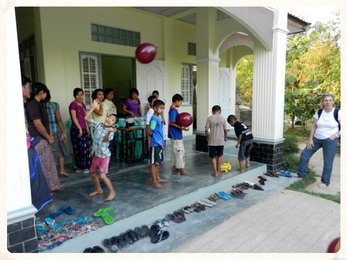
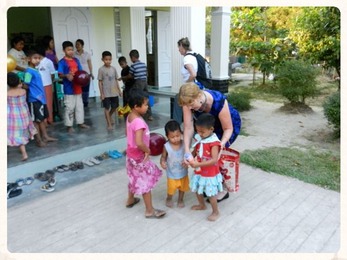
Another highlight of our time in Yangon was a visit to the U. S. Embassy. There we were fortunate to receive an extensive briefing by James Shea, Political/Economic Officer. Unfortunately, we were not permitted to take any photographs there, but I can tell you that we received comprehensive information about the current state of affairs in Myanmar in terms of Political, Economic, and Social developments. This country is an interesting place these days as it moves through an evolving process of “opening up” with all that implies in terms of economic and personal freedoms. Although still limited in some respects, the change is relatively apparent.
We also had the good fortune to meet with a group of local business people calling themselves a Professional Marketers Association (PMA). In actual fact, they seemed much more like a diverse group of business men and women joining forces to promote the economic development of their country. Here we are as a group just getting ready to sit down for a delightful lunch.
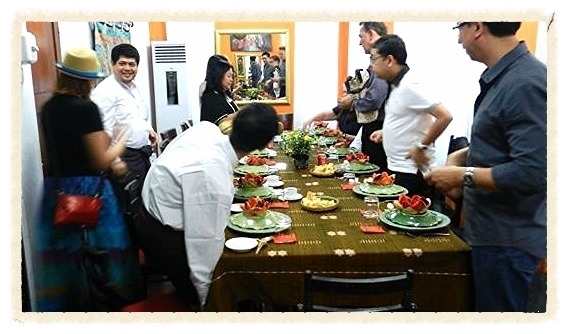
One result of this meeting was the opportunity to visit the businesses of some of the members, including a large (over 200 employee) call center and the Myanmar brewery, a huge operation with an 83% market share.
A nice side benefit of our visit to the call center was the loan of SIM cards for each of the five of us. That may not sound like a big deal, but in Myanmar it is. It saved each of us $80 for the card, plus more money for the minutes. This is quite a contrast with Cambodia and Thailand where SIM cards are just a dollar or two and the minutes for the phone are likewise inexpensive. I’ll also mention that the cost of a Myanmar SIM card is now down from previous levels of $2,000 to $4,000 each! If you think about it, one way to control a population is to prevent widespread communications by controlling the availability of cell phones and Internet access. Costs that high that high sure did exactly that.
We spent one entire day venturing out to visit the Pyay Charity Family, a monastery school in the town of Pyay, a six-hour bus ride (each way) over narrow, bumpy roads. Whew!
At this point I should say something about driving in Myanmar. Myanmar, the former British colony (then called Burma) now drives on the right. (That’s another story we’ll save for another time.) However, virtually all the vehicles are still fitted out for driving on the left. In other words, the steering wheels are on the right side of the vehicles, including the busses. That, of course, results in the doors of the bus being on the left side of the vehicle which puts them facing right into traffic. Entering and exiting the bus was always a bit of an adventure – as was the driving experience — and particularly challenging for the driver because he had very poor visibility for passing.
The roads are narrow – sometimes very narrow – poorly maintained, and used by a wide variety of vehicles including cars, busses, little trucks, big trucks, motorbikes, bicycles, hand carts, ox carts, and a variety of self propelled critters including humans, dogs, cats, and more than a few cows. Now picture the blend of speeds this involves, ranging from our driver wanting to go about 60 mph down to the ox carts and hand carts moving along at 2 mph tops. So the chosen approach to this challenge? Drive fast, blow your horn – a LOT – and rely on your shotgun in the left front seat to tell you when it was okay to pass. Would it surprise you to know that I gave up looking out the windshield?
The trip was definitely worth it, however, once we got a chance to connect with the more than 200 kids getting an education there in Pyay. Some of the kids, about 20 girls and a like number of boys come from such challenging life situations that they are better off living at the monastery than in their villages.
We had a lot of fun with the kids – singing songs, playing ball, and even getting our faces adorned with the traditional Burmese face potion, the purpose of which is to shield from the sun – and to do so in a decorative way.
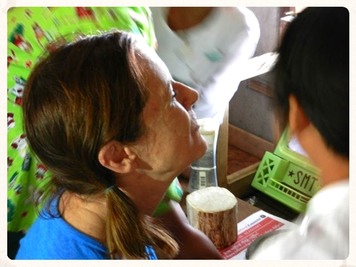
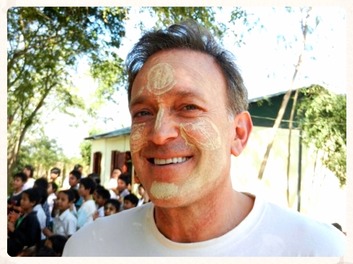
The kids played guitars along with Jana
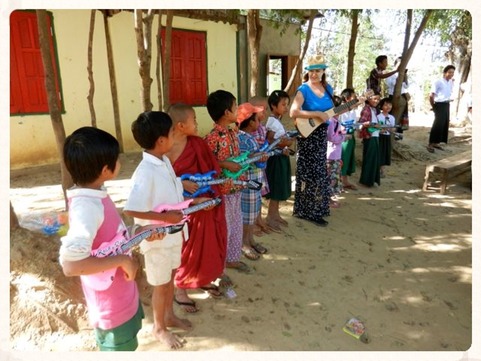
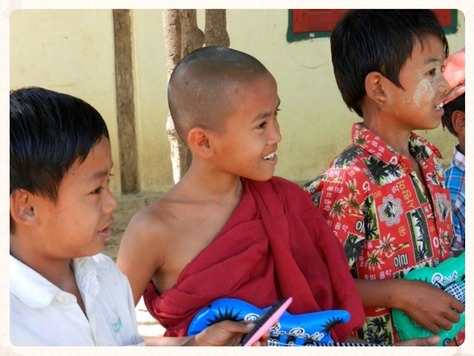
The girls’ sleeping room was so spartan that we made an on the spot gift to provide sleeping mats and blankets for them.
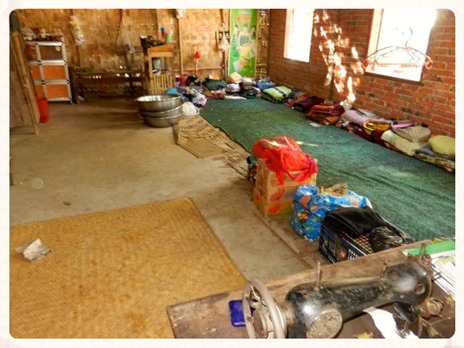
We even found a monk that could play Jana’s guitar. Here we are with him.
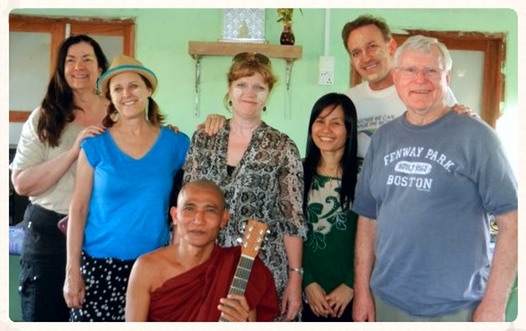
And, here’s the entire group as we were preparing to leave Pyay.
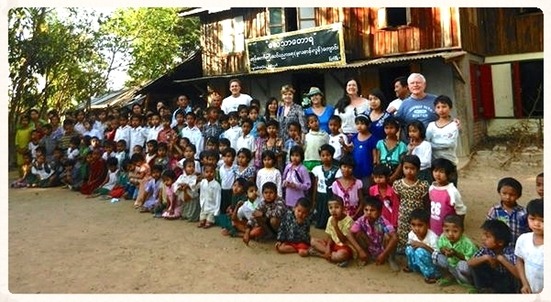
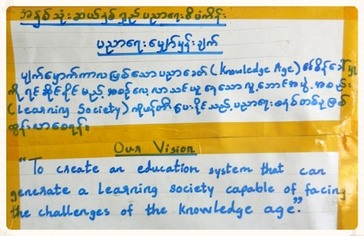
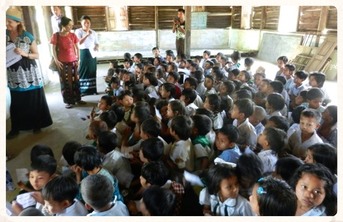
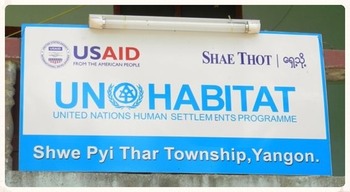
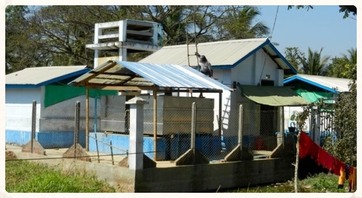
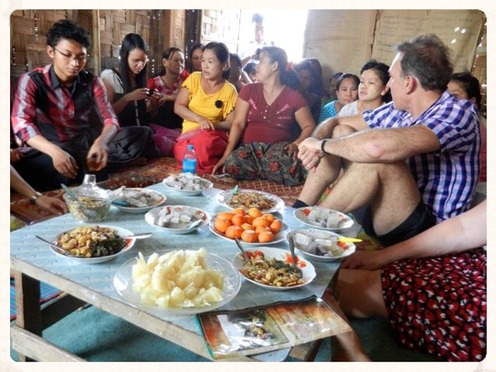
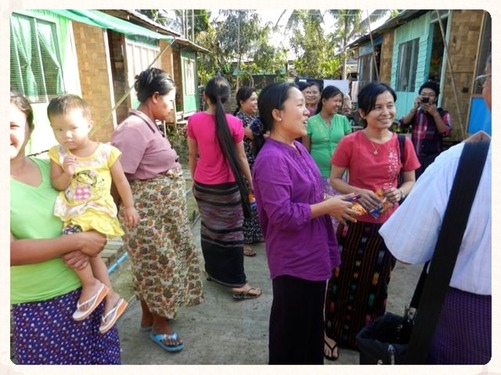
What’s really impressive is how these women have taken this well beyond the notion of merely a “savings group”. They are truly transforming their village. For example, in order to be eligible to participate in the group, a family commits to certain standards of behavior for the community, including litter control and general maintenance. Beyond that – and even more impressive – these women have, with their newfound economic clout, influenced the behavior of the men of the village. They report impressive declines in gambling, drinking, and smoking. And, perhaps most impressive of all, there is a clear “three strikes and you’re out” provision that has greatly reduced violence against women. Lisa, the leader of this group, is a strong candidate for our SALI program in Seattle when the next group of delegates is selected.
We also managed to get in a bit of sightseeing while there in Yangon, the highlight of which was a nighttime visit to the Shwedagon Pagoda. Not much I can say about that experience. I’ll let the pictures speak.
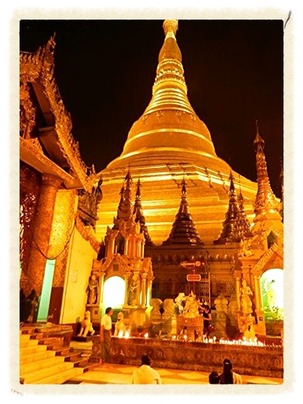
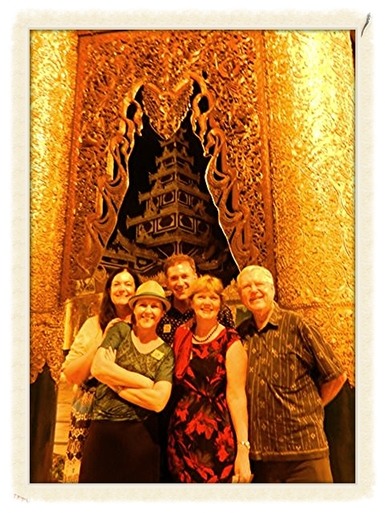
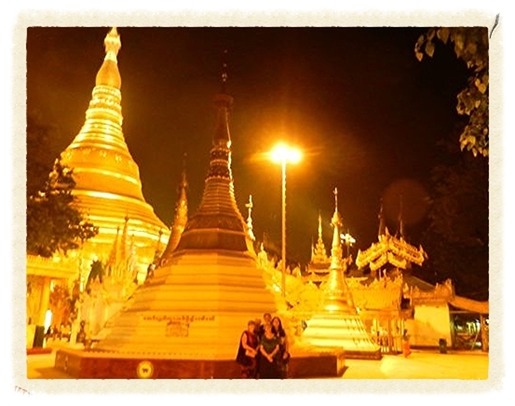
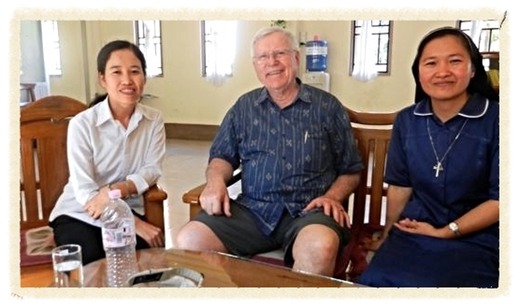
This was a great start for our first ever TWCCTW trip into Myanmar. We connected with the U. S. Embassy. We’re now well connected with the business community and will be conducting training and fund raising events in Yangon and Mandalay this coming May. We visited five Partners Asia projects supporting the needs of impoverished and at-risk women and children, to which we made a sizable donation.
Following these very full five days in Yangon it was time for me to say goodbye to the TWCCTW group for now and head off to Thailand to work with several SE Asia Children’s Fund projects there. More on that in the next report.
Life is good … at least for some of us it is. Others need a bit of help — and together we can provide them with exactly that.
